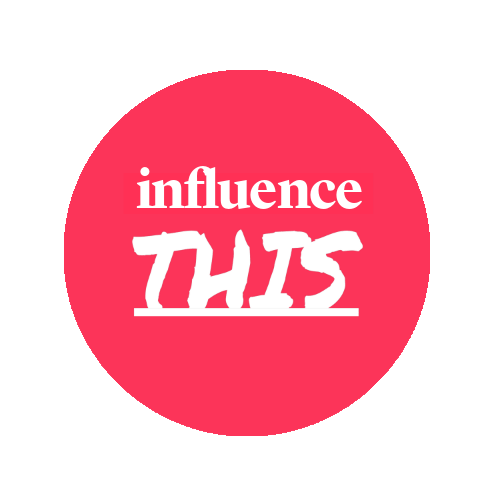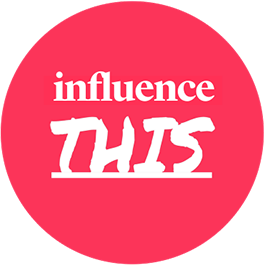Disclosing Branded Content: What You Need To Know
The marketing landscape in Canada has changed quickly. Branded content and influencer marketing have become an effective way to grab attention, engage audiences and drive sales. Influencers are also a valuable tool in managing the two-way conversations that consumers have come to expect from their favourite brands. From sharing photos and videos to writing engaging articles, influencers foster and grow audiences through their online networks; a win-win for the influencer and the companies they represent. It’s now commonplace for companies to have entire departments and budgets dedicated to finding influencers to promote brands via their social media platforms, blogging efforts and YouTube channels.
In response to the growth of branded content and influencer marketing, Canada has slowly recognized the need for regulations and guidelines. Best practices and awareness around disclosing influencer relationships and protecting the integrity of consumer relationships is limited, and this can have negative consequences for creating a trusted brand and fostering healthy, engaging online platforms. As marketers, we need to navigate this new landscape, understand the recent changes set out by regulatory bodies and nurture the relationships between consumers, influencers, and our brands.
Here are 5 things you should know about disclosing branded content in Canada.
1. THE AD STANDARDS GUIDELINES
Ad Standards is a national nonprofit that promotes best practices for advertising. In 2016, the ASC introduced guidelines for disclosing branded content. Simply put, if a company pays or compensates someone in-kind to promote its products on social media, those online posts must clearly be identified as advertising or sponsored content. The guidelines are meant to uphold the authenticity, honesty and integrity of all online marketing tactics by requiring companies to clearly disclose working relationships. In response to guidelines, social media platforms have created tools to help marketers comply.
For example
1. Facebook implemented the Branded Content Tool which outlines ways to create and manage sponsored posts.
2. YouTube added an optional text disclosure statement which influencers can manage through their YouTube Creator Studio.
3. Instagram launched a “Paid Partnership with business” tag which makes it easier for influencers to highlight sponsored posts.
4. The Twitter Ads Policy outlines guidelines for paid advertising products related to Tweets, trends, and accounts.
5. Snapchat’s Advertising Policy states that they can apply “AD” or “Sponsored” to any ad products of placements.
Ad Standards manages the compliance with the guidelines through complaints it receives about improper practices on the part of advertisers or influencers. It has formed n Influencer Marketing Steering Committee which has released Disclosure Guidelines to provide more clarity to brands and influencers about how to let consumers know what is being given and received in exchange for sponsored posts.

2. A LITTLE HISTORY
Canada has lagged behind the U.S. in enacting disclosure guidelines for branded content. The U.S. Federal Trade Commission published guidelines in 2009, which outlined the need for companies to disclose all compensated marketing tactics. With almost 10 years under their belt, only 1 in 10 marketers in the U.S. claim they fully understand the guidelines, let alone put them into action. In Canada, awareness of the Ad Standards guidelines isn’t any better, with 39% of marketers unaware of the guidelines, and 38% being aware of the guidelines but not familiar enough to comply. Moving forward, there is a clear need for proactive marketer education.
3. SETTING EXPECTATIONS FOR BRANDED CONTENT
It’s important to set expectations with influencers through a sponsorship contract agreement. Along with outlining concrete content deliverables and rights to that content, the contract should clearly state how to comply with Ad Standards guidelines and how to disclose the relationship between a company and an influencer with each post, article or sponsored interaction. People trust the influencers they follow and companies must work to uphold this trust. Influencers can disclose sponsorship in-posts or through a disclosure policy statement. According to the 2017 “State of the Creator Economy Study” by IZEA, there was a dramatic drop in the number of influencers that disclosed sponsorship between 2015 and 2016. This is another indication that additional marketer education around branded disclosure guidelines is necessary.
4. CONSUMER RELATIONSHIPS
In 2017, Ad Standards Research released a report that outlines “Consumer Perspectives on Advertising.” Most consumers indicated that their trust in a company would decrease if advertisements were created to look like news stories, encouraging a high click-through rate. Most consumers (68%) strongly agree that news websites should have rules to ensure ads don’t look the same as content. It’s an important distinction and consumers are aware of the intent behind these types of advertisements. In addition, the vast majority of respondents (70%) believe rules and regulations around disclosure of compensation for influencers need to be transparent.

5. THE FINES
The Ad Standards cannot fine or lay charges against advertisers that don’t comply with its standards, but it can refer cases and complaints to the Competition Bureau, and the bureau is cracking down on companies that do not follow branded content guidelines. In 2016, Bell Canada received a $1.2 million fine for encouraging employees to write reviews for the brand’s digital app without declaring that they worked for the company.
The growing business of paying celebrities to endorse products on Twitter, Facebook and Instagram has raised concerns among Canada’s Competition Bureau that consumers will mistake that content for authentic testimonials instead of paid promotions. The maximum penalty for violation of misleading advertising under the Competition Act is $750,000 CAD for individuals and $10 million CAD for corporations. However, most fines are levied as part of a settlement and won’t reach the maximum amounts.
Steve Szentesi, a Toronto-based competition, antitrust, advertising and regulatory lawyer counsels extensively about influencer marketing. He agrees that there is more work to be done with educating industry leaders on branded disclosure best practices and guidelines. “It would be great if the bureau did more work in that area and provided brands with more clarity, particularly some guidelines with specific examples. I have not really seen that yet in Canada.”
WHAT TO DO NEXT
Influencer marketing is on an upward growth path, and it has cemented itself as a major marketing strategy. With continued growth, it’s important to stay up-to-date on trends, best practices, and regulations related to disclosing branded content. Here’s what to do next:
- Become familiar and comply with the Disclosure Guidelines
- Implement contractual agreements with influencers
- Nurture consumer relationships and be transparent with all online engagement
- Stay up to date with regulatory changes and best practices
WANT TO LEARN MORE?
Join us on May 15th, 2018 for the annual InfluenceTHIS! Conference.
Learn from, network with and do business with Canada’s top marketers, agencies, publishers, platforms, and creators.
Workshops, presentations, and networking for marketing professional in Canada.



